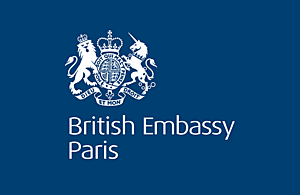French border restrictions in response to coronavirus
A summary of the border restrictions in place for travelling to the UK and to France.

logo
Travelling to France
Since 20 March 2020 entry to France has been limited to those transiting through France, returning French nationals and permanent residents, and a small number of essential travel categories.
In order to enter France you will need to complete an international travel certificate, which certifies that your journey is essential and confirms that you have not been suffering from a set of listed symptoms associated with Covid19. This travel certificate is available on the French Ministry of the Interior’s website.
If entering France from the UK, EU, Andorra, Holy See, Iceland, Lichtenstein, Monaco, Norway or Switzerland you will need to complete the travel certificate (in English) under “Attestation de déplacement dérogatoire vers la France métropolitaine depuis: l’Union Européenne et Andorre, Islande, Liechtenstein, Monaco, Norvège, Saint-Marin, Suisse, Royaume-Uni, Vatican”.
If entering France from other locations or travelling to French overseas territories you will need to fill in tailored versions of the international travel certificate, accessible on the same webpage.
The international travel certificate needs to be produced for entry, along with any supporting paperwork to substantiate the essential nature of your travel. If you are entering or transiting through France, depending on your circumstances, you also need to have:
- a travel declaration to certify your reason for travel if your primary residence is more than 100km from your point of entry
- a travel certificate if travelling in Île-de-France (Greater Paris) on public transport at peak hours (from 06h30 to 09h30 and from 16h00 to 19h00)
From 25 May a voluntary 14 day self-quarantine will apply to those arriving in France from outside the UK, EU (except Spain where arrivals by air will be asked to self-quarantine) Andorra, Holy See, Iceland, Lichtenstein, Monaco, Norway and Switzerland.
Once self-isolation measures come into effect for arrivals to the UK (planned for 8 June), France will then also ask arrivals from the UK to observe a voluntary 14 day self-quarantine.
Travellers showing signs of a COVID-19 infection upon arrival in mainland France will have to carry out a mandatory 14 day quarantine at home or in a dedicated location indicated by the French authorities if home quarantine is not feasible.
All travellers to French overseas territories will also have to carry out a mandatory 14 day quarantine. Full detail and a list of exemptions to self-quarantine in France are set out in a Ministry of Interior press statement (in French) and its translation (in English).
Travelling to the UK
From 8 June
From 8 June, there will be new rules in place for entering the UK because of coronavirus (COVID-19). The rules are for residents and visitors.
When these rules are in place, you will:
- need to provide your journey and contact details when you travel to the UK
- not be allowed to leave the place you’re staying for the first 14 days you’re in the UK except in very limited situations (known as ‘self-isolating’)
You do not need to do these things now. But you should check the latest public health advice on coronavirus before you travel, or if you’ve just arrived in the UK.
Once the rules come into place you may be fined £100 if you refuse to provide your contact details, £1,000 if you refuse to self-isolate in England and Wales, or you could face further action. You’ll be able to find more information on enforcement measures in Scotland and Northern Ireland on this page soon.
Full detail and a list of exemptions to self-quarantine in the UK are set out here.